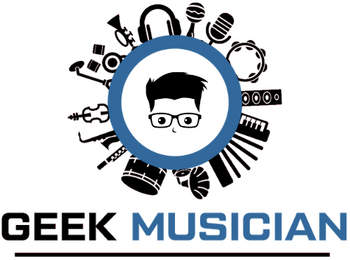
Over the years, MIDI files are gradually replacing traditional sheet music. MIDI has now become the standard way we program musical notes in music production software. And it’s quite easy to transfer MIDI files from one person to the other.
But just as any intellectual property, MIDI files have their own unique copyright laws that most people are not aware of. So this blog post is dedicated to answering all of the common questions people have on MIDI and copyright. If this is something you are interested in, then let’s get into it.
What are MIDI Files?
For those who might not be familiar with what MIDI is, MIDI stands for Musical Instrument Digital Interface. MIDI is an industry protocol created for recording and playing back music on digital synthesizers supported by a variety of computer sound cards. It governs how electronic instruments communicate with each other.
MIDI files contain one or more MIDI streams. MIDI files can contain all types of information, such as what notes were pressed, timing, pitch, tempo, and panning. They also come with time information for each event. They contain every note that every instrument in the band plays.
Unlike regular audio files like MP3s or WAVs, MIDI files do not contain actual audio data and are much smaller in size. This makes it easy to transfer such files over low bandwidth internet connections.
Are MIDI Files Copyrighted?
Some MIDI files are copyrighted. Such MIDI files are copyrighted as being computer programs. This means you’ll need permission from the copyright owner if you intend to use, reproduce, and distribute copies of the data contained in such MIDI files. However, there are lots of free MIDI files online as well.
As you may already know, there are two main types of music copyright — composition and master recording.
The composition copyright covers all the elements in the music. And that includes the lyrics, melodies, sheet music, and more. And this is held by the songwriters, composers or music producers, and musicians.
And then there is the master recording copyright. This is a copyright of the actual song – the final sound recording of the song.
Traditionally, MIDI files are not explicitly mentioned in these two types of music copyright. And this is why many people think they are not copyrighted or cannot be.
However, that’s further from the truth. Composers who want to copyright their MIDI files can copyright them as a computer program. And that’s exactly what they are. MIDI files are files that contain programmed instructions meant for synthesizers, sequencers, and keyboards.
And some music producers and composers have copyrighted all of their music compositions, including their MIDI files. Some of them are copyrighted, so that you can purchase those files if you intend to use them for your own music.
These files are copyrighted to protect the work of transcribing or arranging of the file and not because of the music itself. This makes it illegal to reproduce and distribute unauthorized copies of the data found in copyrighted MIDI files without the necessary permission from the copyright owner.
However, there are plenty of free MIDI files online. These can be used and reproduced without the need to obtain permission from the copyright owner.
Is Downloading MIDI Files Illegal?
There are many MIDI files available on the internet that are free and legal to download. However, downloading or distributing an exact copy of a copyrighted MIDI file from unapproved sites is illegal. Before you download any MIDI file from a website, ensure you check the copyright information.
Many sites provide free MIDI files that you can download and use for educational purposes. You can find some of these MIDI files on many college music department’s websites. However, these files cannot be used commercially.
Meaning, you can’t sell them, use them in your commercial music or teach someone with them for monetary purposes. To use these MIDI files commercially, you’ll need to acquire the necessary permissions from the copyright holder.
The same thing applies to copyrighted MIDI files uploaded on free cracked websites. There are many MIDI chord packs circulating on illegal pirated content websites. These files are definitely illegal to download as well.
If you buy it from a legal store, the copyright owner gets his money. MIDI files can easily be downloaded from the internet by anybody. However, their legality depends on the copyright protection of the materials available.
Can You Get Sued For Using MIDI Files?
You can be sued for unauthorized use of copyrighted MIDI files. You can even get sued for using a free or non-copyrighted MIDI file version made of a copyrighted song. However, you can use free MIDI files of public domain songs without the risk of any legal action.
When a song is copyrighted, the notes, chords, and timing fall under the copyright and not the timbres in the song. If this same information is programmed into a MIDI file, it can be copyrighted. Therefore, if you try to make money off such MIDI information, you can be sued.
In the United States, you can be sued for damages or prosecuted in criminal court for copying or distributing copyrighted music. Companies and institutions can face fines of $250,000 for each offense, while individuals may face fines of close to $50,000 per offense. In addition to these fines, a person may be jailed for up to 5 years for each offense.
You can also get sued by using a MIDI file made of a copyrighted song. If someone transcribes a particular song and programs it as a MIDI file and you use that in your own music, you can also get sued.
This is because the songwriting copyright will still be in effect over the “free” MIDI file. To be on the safe side, I recommend that you use MIDI file versions of public domain songs.
Can You Copyright MIDI Files Made from Public Domain for Commercial Purposes?
You can copyright a MIDI file even if the original music has entered the public domain. Music that is in the public domain has no copyright. This means you are free to make your own MIDI file from it. However, MIDI files that people have created from the public domain music are still their creative property and can be copyrighted.
Any MIDI file a person creates, whether original or based on public domain music, is their artistic property. Hence they do not lose the right to come under the protection of the law. The creator of a MIDI file owns the copyright to the file. It does not matter whether the recorded song is in the public domain or not.
This copyright is different from the songwriter’s copyright. The MIDI file is protected by separate copyright because it is considered a work by itself. Such MIDI files are protected by copyright. Such files are still protected even if they let other people download them for free.
However, you can decide to give up any copyright claim on your works if you create your own MIDI file from a song in the public domain.
Are There Royalty-Free MIDI Files?
There are many royalty-free MIDI files out there. Many musicians and composers have created MIDI files that are not copyrighted. This means you do not need to pay any form of usage or performance royalties to any collection agency or anyone to use these MIDI files.
For MIDI files where the original recording is not in the public domain, you must pay mechanical/digital royalties to the songwriters. Venues that play these recordings must also account for song playback in order to pay performance royalties.
Royalties are paid over the amount of money earned on MIDI files over a defined period. In the United States, royalties are paid to collection agencies such as the American Society of Composers, Authors, and Publishers (ASCAP), Broadcast Music Incorporated (BMI), Performing Rights Society (PRS), etc. for copyright.
Where Can I Find Free MIDI Files?
It’s quite easy to find MIDI files of popular songs on the internet. Many music producers remake popular songs and share the MIDI files of those songs publicly online. To get a MIDI file of a particular song online, you can do a song title search along with the keyword “MIDI.”
You can use these MIDI files as an inspiration for your own music. But, just as we’ve already talked about, you can’t use them in your own music without the necessary permissions. You can get sued for using MIDI files made from existing songs.
There are many websites online that promise you free MIDI files. However, most of these sites will require you to register or pay before you can download what you want. Other sites tend to waste your time by tossing you through a chain of hoops before you can even download a MIDI file. I’m sure you are familiar with this ordeal.
Thankfully, there are a few websites where you can find lots of MIDI files available to download for free. Below is a list of some of the best websites where you can find free MIDI files;
- BitMidi is the best-known website to get free MIDI files. It gives you access to over 113,000 MIDI files over a wide range of genres.
- Midiworld has over 10,000 MIDI files.
- FreeMidi has over 26,000 MIDI files on its platform.
- Carlo’s Midi has more than 400 MIDI files of all genres.
Final Thoughts
When downloading MIDI files from the internet, be mindful of copyright protection laws. Some MIDI files can be downloaded without any legal issues, while others can’t. Also, laws regarding the sharing and downloading of MIDI files and music, in general, differ from country to country.
Music in any form can be copyrighted. Music can be copyrighted whether the music is written as notes on a treble clef or saved in a MIDI file. This means MIDI files can be protected by copyright, just as an actual song and recording would be.
There are lots of MIDI files on the internet that can be downloaded. However, its legality depends on the copyright protection of the material available on the site.

Hello, I’m Elijah. A writer on Geek Musician, based in Ghana-West Africa. I am a writer with a passion for research and reading. I usually spend my free time playing chess or watching movies. For more info, check out my about me page. Or read more of my articles here.
